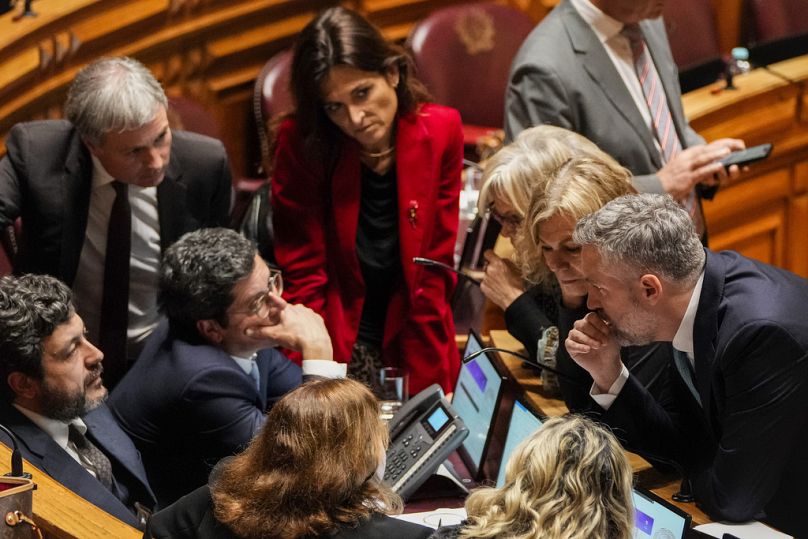The law was passed by the centre-right parliamentary majority after the Constitutional Court rejected the original text in July, judging it as being overly severe on family members of immigrants who wanted to join them.
Portugal on Tuesday passed tougher immigration regulations that make it more difficult to enter the country after right and far-right parties voted in favour of the amended bill in Parliament.
 ADVERTISEMENT
ADVERTISEMENT
 ADVERTISEMENT
ADVERTISEMENT
The law was passed by the centre-right parliamentary majority after the Constitutional Court rejected the original text in July, judging it as being overly severe on family members of immigrants who wanted to join them.
According to the raft of approved measures, family reunification for immigrants will now only be applicable after at least two years of lawful stay, and only highly skilled individuals will be eligible for job search visas.
Another aspect of the change pertaining to the requirements for obtaining Portuguese nationality is still up for debate among lawmakers. A clause that permitted migrants to seek regularisation by demonstrating that they had worked and made contributions to social security for a minimum of one year—even if they had entered Portugal on a tourist visa—was repealed by the minority right-wing administration last year.
The right-wing parties PSD, Chega, Iniciativa Liberal, CDS-PP, and JPP, represented in the chamber, overwhelmingly supported the two largest parties' approval of over a dozen revisions to the decree, although all of the left-wing parties (PS, Livre, PCP, Bloco de Esquerda, and PAN) voted against the bill.
All the proposed amendments tabled by the PS on the Foreigners' Law were rejected, with the parties that support the government - PSD and CDS-PP - voting against, as well as Chega and Iniciativa Liberal.
Right-wing reached consensus after 3-day talks
The voting behaviour of the various parliamentary groups was announced after, according to SIC, the PSD and Chega reached an understanding after three days of negotiations to enable the legislative package to be approved.
During the debate on the proposal, the Minister for the Presidency, António Leitão Amaro, praised the "constructive stance" taken by the "three largest opposition parties" - Chega, PS and Iniciativa Liberal - during the discussion, despite their "differences". He considered, before the vote, that this could be "a very important day for Parliament" if the proposal was considered favourably.
Chega considered the new version of the document to be "sufficient". "We salute the government for having managed to tighten up some of the rules that were initially planned and for recognising that there are abuses in the granting of social support that must be combated," said Cristina Rodrigues, representing the party.
For his part, Pedro Delgado Alves, from the PS, called on the Executive led by Luís Montenegro to choose to "avoid populist temptations" and follow a "constructive path in search of solutions".
The decision was not taken unanimously, but the majority of the judges declared unconstitutional rules relating to the limitation of family reunification and restrictions on legal recourse.
But as far as this new version of the Foreigners' Law is concerned, the head of state has already indicated over the last few weeks that he will probably promulgate it, with the expectation that it will respect the provisions of the Constitution.
According to data from 2024, there were over 1.5 million non-Portuguese residents of Portugal, making up around 15% of the country's total population and about four times as many as there were in 2017.











